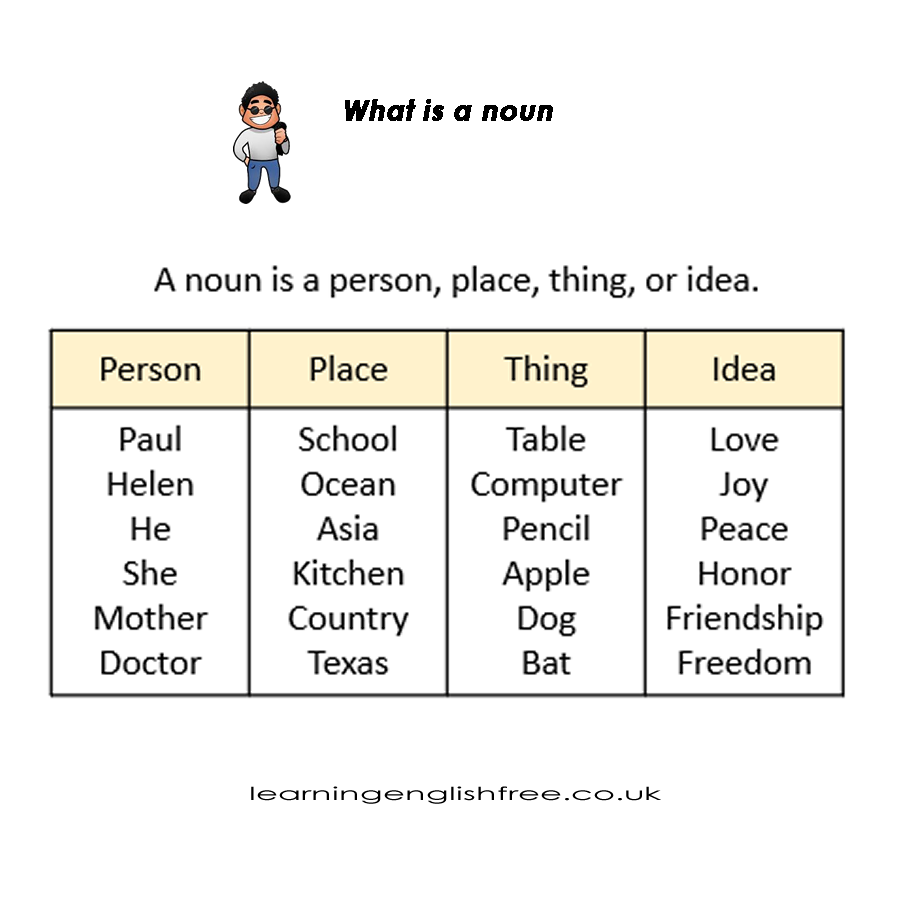
What are nouns used for?
Nouns are words that name people, places, things, or ideas. In simple English, a noun is the name of something. There are different types of nouns, each serving a unique purpose in language. Here's an explanation with examples:
-
Common Nouns are general names for people, places, or things. They are not capitalized unless they start a sentence.
- Example: "The dog chased the ball in the park."
-
Proper Nouns are specific names for particular people, places, or things and always start with a capital letter.
- Example: "Mr. Smith lives in New York City."
-
Concrete Nouns: These nouns represent things that can be physically touched or seen.
- Example: "She sat on a chair under a tree."
-
Abstract Nouns are names for ideas, qualities, or conditions you can't touch or see.
- Example: "Her happiness was evident after receiving the award."
-
Countable Nouns: Nouns that can be counted as individual units.
- Example: "She has three cats."
-
Uncountable Nouns (or Mass Nouns): These nouns cannot be counted because they are seen as a whole or mass.
- Example: "He drank some water."
-
Collective Nouns: Nouns that refer to a group of people, animals, or things.
- Example: "A flock of birds flew by."
-
Compound Nouns: Nouns are made up of two or more words that function as a single unit.
- Example: "She gave him a toothbrush."
-
Possessive Nouns: Nouns that show ownership or possession.
- Example: "This is Jenny's book."
-
Plural Nouns: Nouns that indicate more than one person, place, thing, or idea.
- Example: "There are three dogs in the yard."
Each type of noun helps to give more specific information in our sentences, making our communication more transparent and more effective.
